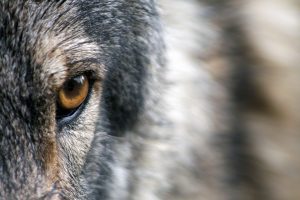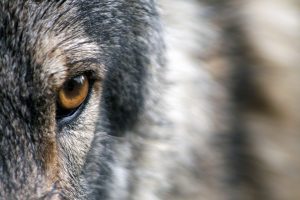
Fiscal Year 2017
Once again, the Republican leadership, especially in the House, is advancing a Big Polluter Agenda to undermine just about every basic environmental protection current law provides to the American people. It appears no environmental law is safe from the demands of corporate polluters and their cheerleaders in the Republican Party.
The Republican Leadership is trying to force this Big Polluter Agenda on the public through provisions in must-pass spending bills. These provisions are called “riders” because they ride along on unrelated legislation. Riders that are typically tacked onto a spending bill, for example, would not change federal spending by one cent. Instead, riders are used to sneak through legislative changes that would be difficult to pass on their own in open congressional debate. Riders often result in the measures getting less scrutiny and enable their sponsors to avoid responsibility for pushing them. And they can be harder to veto because of all the unrelated items surrounding them. In the past, spending riders have led to government shutdowns when intransigent Republicans were unwilling to fund the government without restricting environmental protection.
But polling clearly shows strong public support for environmental protection. That’s why the Republican leadership uses riders – they know how hard it would be to prevail on a clean yes-or-no vote directly on environmental and public health protections. Republican leaders have learned little after forcing a government shutdown that Standard & Poor’s says cost the nation $24 billion. They are again threatening damage to America’s families, communities, and economy as they strive to reverse many years of progress.
These are the riders that have been added so far to the spending bills for fiscal year 2017, which begins October 1. We include section numbers to indicate where these riders are found in the corresponding legislation. In some cases, we include amendment numbers for riders that were voted into legislation but have not yet been assigned section numbers. This page will be updated as the appropriations process plays out in the House and Senate.
WILDLIFE
A rider in the House Interior and Environment appropriation (Sec 114) prevents the U.S. Fish and Wildlife Service (FWS) from fulfilling its obligations under the Endangered Species Act. The provision overrides a court requirement that FWS must make a determination on whether sage-grouse should be listed as a threatened or endangered species, and sets a dangerous precedent by circumventing the scientific and legal process established to protect imperiled species. A similar rider was added to the Senate Interior and Environment appropriation (Sec. 115).
A rider in the House Interior and Environment appropriation (Sec. 119) delists gray wolves in the Great Lakes and Wyoming from the Endangered Species Act and prevent judicial review of this action. A similar rider was added to the Senate Interior and Environment appropriation (Sec. 119).
A rider the House Interior and Environment appropriation (Sec. 445) added by Rep Yoder (R-KS) would prevent implementation of enforcement of a threatened species listing for the lesser prairie chicken under the Endangered Species Act. A similar provision was included in the Senate Interior and Environment appropriation (Sec. 111).
A rider in the House Interior and Environment appropriation added by Rep Lamborn (R-CO) blocks protections for the threatened Preble’s Meadow Jumping Mouse under the Endangered Species Act, thwarting recovery efforts for this western species, which continues to experience habitat loss and other threats throughout its range. The rider eliminates crucial recovery programs for the mouse, such as Habitat Conservation Plans, that require the participation of private and public land managers as well as federal funding.
A rider in the House Interior and Environment appropriation added by Rep Lamborn (R-CO) blocks funding for species listed under the Endangered Species Act if the U.S. Fish and Wildlife Service fails to complete a timely 5-year review of that species’ status. Yet insufficient funding can cause FWS to miss the deadline. Thus, this amendment would condition the very survival of some species on Congress’s longstanding and continuing failure to pass bills to appropriately fund FWS.
A rider in the House Interior and Environment appropriation added by Rep Newhouse (R-WA) blocks efforts to protect endangered gray wolves in the continental United States by 2017 under the Endangered Species Act. This species is currently listed as endangered in most of the lower-48 states. A national delisting for wolves would reverse the remarkable progress the ESA has achieved for this species and once again put the gray wolf at risk of extinction.
A rider in the House Interior and Environment appropriation added by Rep Pearce (R-NM) blocks federal recovery efforts for the endangered New Mexico Meadow Jumping Mouse under the Endangered Species Act. This rare southwestern subspecies has suffered a significant population decline due to habitat loss and fragmentation throughout its range.
A rider in the House Interior and Environment appropriation added by Rep Gosar (R-AZ) blocks federal funding for the endangered Mexican gray wolf under the Endangered Species Act. It also limits recovery to “historic range,” even though scientists say the wolves must be restored to new habitats to recover. There are less than 100 Mexican gray wolves in the United States; blocking recovery for these wolves and keeping them out of suitable habitats they need to recover brings them one step closer to extinction.
A rider in the House Interior and Environment appropriation added by Rep Westerman (R-AR) blocks enforcement of a federal court decision that found the U.S. Fish and Wildlife Service violated the National Environmental Policy Act (NEPA) by allowing the killing of double crested cormorants without current data, adequate scientific analysis, or evaluating less harmful alternatives. Congress should allow court decisions to stand, rather than stepping into a role that is not rightfully theirs.
A rider in the Senate Interior and Environment appropriation that was added to the committee report (Committee Report pg. 68) declares glyphosate safe for humans and wildlife and urges EPA to rush completion of its registration. Glyphosate is linked to the dramatic decline in pollinator habitat and potentially poses risks to human health. EPA should expeditiously complete its review but only on the basis of sound science rather than political pressure from Congress.
A rider in the Senate Interior and Environment appropriation (Sec. 117) blocks an important FWS rule to conserve wolves, grizzly bears and other native carnivores on national wildlife refuges in Alaska. This provision would bar FWS from prohibiting the state’s aggressive “predator control” program on our federal public lands, effectively allowing extreme non-subsistence hunting practices that target iconic carnivores, including trapping, baiting, aerial gunning, killing at den sites and killing mothers and young. The provision would prevent FWS from ensuring over 100 million acres of federal lands in Alaska are managed in accordance with bedrock conservation laws.
A rider in the House Interior and Environment appropriation added by Rep Gosar (R-AZ) would threaten wildlife and risk public safety at Havasu National Wildlife Refuge in Arizona. It would block the U.S. Fish and Wildlife Service and stakeholders from addressing certain recreational activities on the refuge that create dangerous conditions for visitors and undermine natural resource conservation, setting a dangerous precedent for the entire Refuge System.
A rider in the House Interior and Environment appropriation added by Rep Cramer (R-ND) would block a badly needed rule that better protects lands and wildlife where non-federal oil and gas development takes place in the National Wildlife Refuge System. This rule will at least better mitigate the impacts of oil and gas extraction on refuges that host wildlife, prized recreation opportunities and natural heritage. By blocking efforts to improve protections, the amendment increases risks to wildlife and public lands.

Comments
I am thoroughly disgusted with these Republicans. What is it with you people? Who are you out to please? Certainly not the majority of voters who want the wolves and wildlife left alone. Instead. you go against the grain by adding riders to bills which are detrimental to wildlife, especially wolves. Stop pandering to big business and special interest groups. They are interested in getting public lands and the resources that are contained therein. If this continues, you just might lose the support of voters. If you can’t do your job, get out.
It is Pretty Sad that they are going against what the Voters have voted for.
It is ridiculous and despicable what they’re always trying to do to wild animals. Wolves, coyotes, bears etc. must be protected from idiots who would kill them all to get the land for their own use and for trophies. I pray these riders do not pass. Wake up before it’s too late!
Its is beyond despicable thats for certain.
Please we need our natural places.
That we do… Please Join Us to help our Vice to grow to the Native American Voice that our Wildlife and Environment so desperately need!